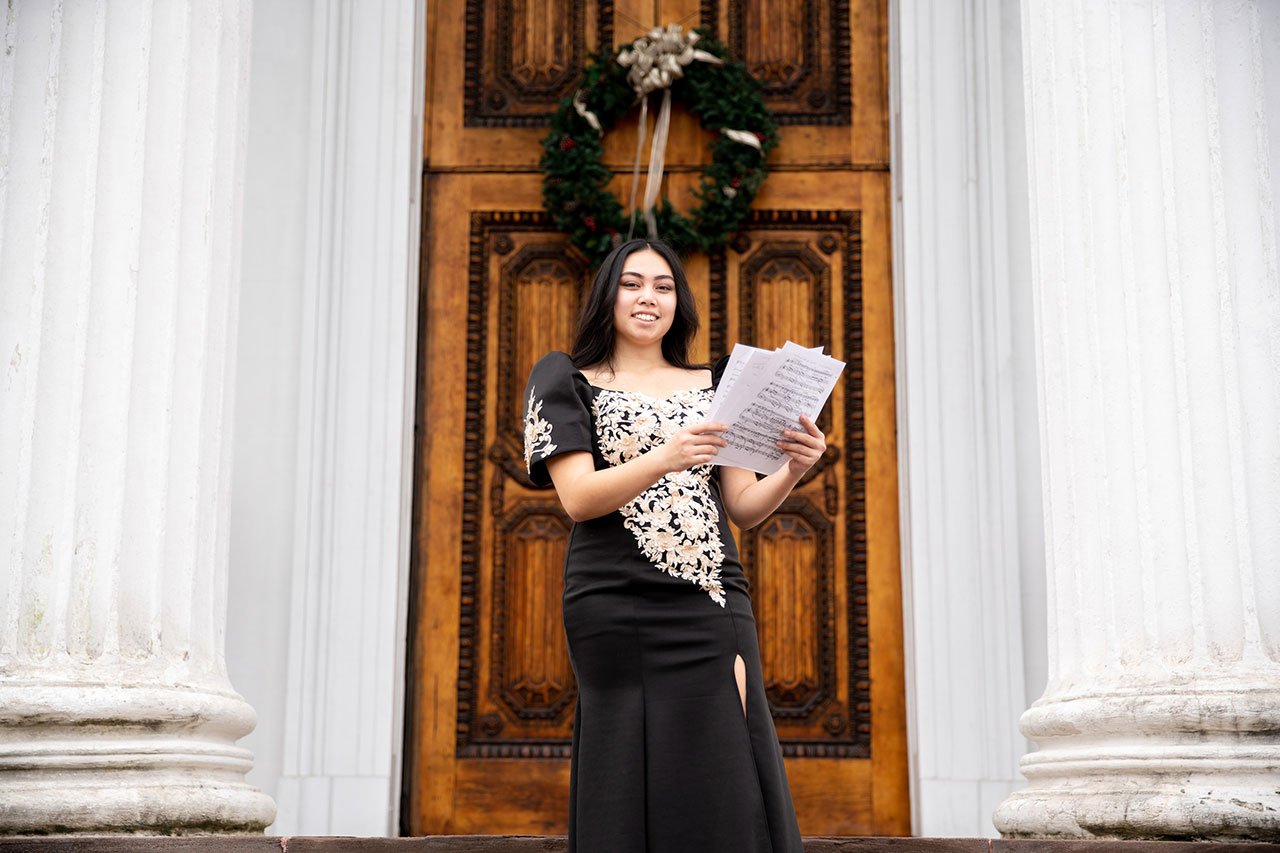Music Major
Combine a strong academic background with intense musical training.
When you choose to study music you will stimulate your mind. Become a creative and critical thinker while fostering a connection between music making and the humanities, arts and social sciences. You may work as a performer, composer, sound engineer or educator. You may want to double-major to work in administration or business.
Why study music at the College of Charleston?
Merge the intense focus of a conservatory with a broad education in the liberal arts and sciences. You'll benefit from our location in a city renowned for its cultural heritage and devotion to the performing arts. You can personalize your education by choosing an area to focus your studies. Here, you'll experience small class sizes and learn from distinguished faculty.
What will I learn?
Studying music teaches you to be an independent thinker. You'll also learn the value of teammwork when you work with other muscians as part of an ensemble. By the end of this program, you'll be able to demonstrate musical literacy and perform with confidence on your primary instrument. You'll be able to analyze the relationship between musical practices and their cultural context and significance.
Program Highlights
-
Hands-On Learning
Our program offers you one-on-one performance study. You'll also gain a solid grounding in music theory and history. You'll take advantage of diverse opportunities for solo and ensemble performance. Each year, the Department of Music presents a wide array of public performances. We feature world-class visiting artists, distinguished faculty and students.
Our concerts include:
- International Piano Series.
- Charleston Music Fest.
- CofC Ensembles.
-
Performance Areas
You can choose a performance emphasis in:
- Voice.
- Piano.
- Woodwinds (flute, clarinet, oboe, saxophone, bassoon).
- Brass (trumpet, horn, trombone, euphonium, tuba).
- Strings (violin, viola, cello, double bass).
- Percussion.
- Jazz (piano, guitar, bass, drums).
-
Location
Charleston is a world-renowned destination for history and culture. The city offers unique opportunities to hear and be a part of a one-of-a-kind arts scene. You will have the opportunity to:
- attend and intern for Spoleto Festival USA.
- perform in the Piccolo Spoleto Festival.
- perform alongside the Charleston Symphony Orchestra and Charleston Opera Theater.
- hear world-class classical, jazz and other touring performances at the Gaillard Center.
- frequent performances in a city defined by cultural tourism.
Careers & Outcomes
- broadcast engineer.
- entrepreneur.
- media development.
- music historian.
- music librarian.
- music production.
- music reviewer.
- music therapist.
- radio programming.
- sound designer.


Composing your own identity
Meleana Cabales wanted to explore her own cultural heritage. That passion led her to perform kundiman, a little-known genre of Filipino art song. Now she's connecting with her culture while introducing it to Charleston.
Read More
About the Minor
If you're passionate about music, a minor may be perfect for you. A music minor allows you to broaden and deepen your musical knowledge and experiences. Many students who minor in music add it to programs like computing in the arts, theatre, secondary education and more.